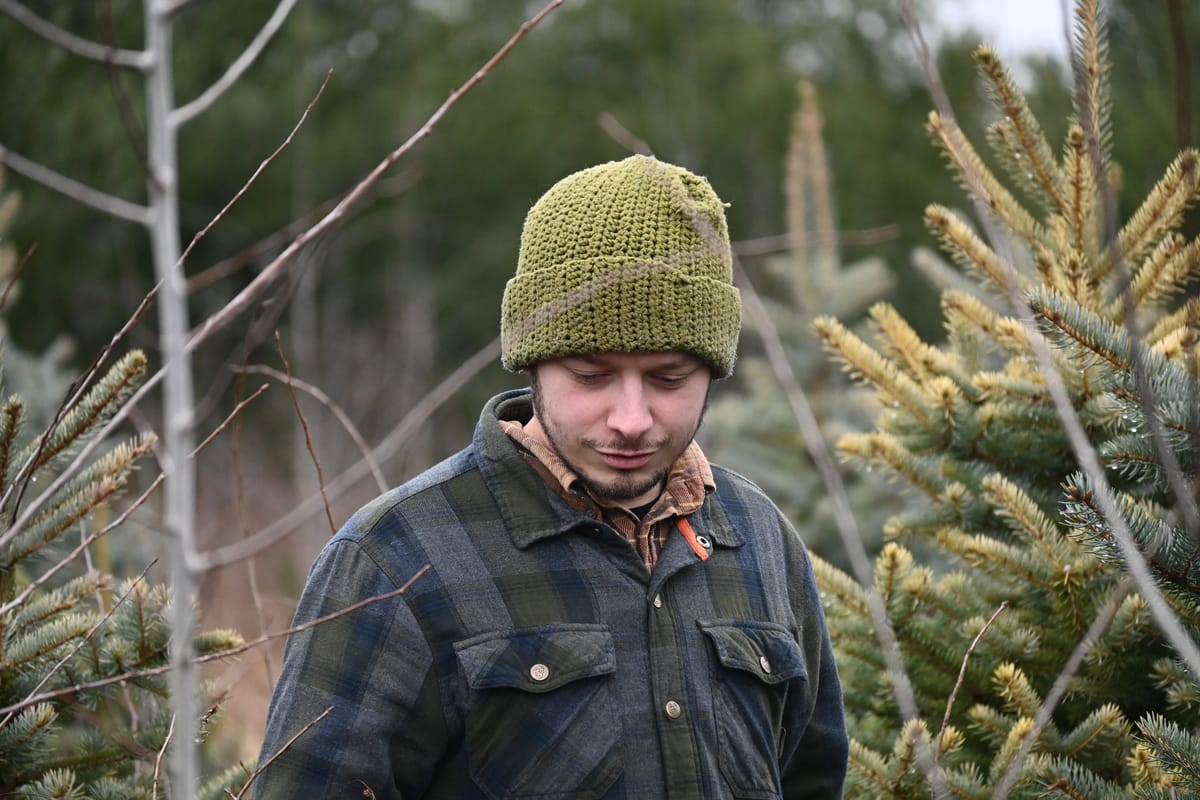
In retrospect this probably should have been the first article I wrote!
But anyways here we are nearly 10 months later. It works out because I have a bigger audience now than I did then, and this is an important subject for every aspiring forager.
First, I want to lay out the ethical responsibilities that we as foragers have, then I will go over some safety measures that you should be aware of.
Harvest Responsibly
This is one of my biggest pet peeves as a forager.
If you want to harvest something, make sure to harvest responsibly! I have had old spots for foraging (ramps for example) be nearly wiped out because other people were over-harvesting and not being careful. It will take that several acres of woodland almost a decade before it even gets close to recovering.
That said, learning about the plant you’re harvesting is vital! (Which if you read this newsletter then you’re already making a good first step!)
Another way to be responsible is to come back later in the year and plant seeds. The more you spread, the bigger the population gets over time!
Also, some plant species are protected by the state and are illegal to forage. In cases like these, I would consider saving seeds from these protected species and grow them yourself in the garden or something.
No Trespassing
This one is self-explanatory, but don’t just forage things (no matter how inconsequential or common) from a random person’s property without getting permission. You would likely not want strangers coming onto your land and picking anything they wanted without permission, so show the same courtesy!
Definitely consider asking people door-to-door if you can forage on their land, the worst that they can say is no!
There are also plenty of public spaces that are free to forage on.
On this note, be aware that not all public lands allow you to forage. I will leave this up to individual discretion since every area is different. I will say that I am in favor of responsible foraging and replanting on public lands regardless of the rules but be aware that you can often get fined pretty significantly if you violate any public land rules.
Again, I’ll leave this up to you. I will say do not be destructive or extractive on public lands, and I’ll leave it at that.

Trout lily
Waste Not
I admit, I am guilty of this myself!
Harvest only what you will use and don’t let any of your harvest go to waste.
Be Respectful
Whether you are on public or private lands, keep the area clean that you forage in. This should go without saying, but don’t leave garbage in people’s woods, don’t cut down a bunch of random plants without permission, don’t destroy the area in an attempt to get to a fruit tree.
Treat the space as you would your neighbor’s house!

Wild pawpaws
Be Cautious
If you pay attention to any part of this newsletter, make it this part:
DO NOT and I repeat do NOT pick or eat anything if you aren’t positive what it is! Seriously, eating one wrong plant or mushroom can turn into a hospital trip very fast if it doesn’t kill you.
You know how you can look at a tomato and know it’s a tomato? I want you that confident when you go out to harvest something.
Be Toxin Aware
One last safety measure: be careful where you pick plants from.
Certain areas can be contaminated and may not be safe to eat from. I would use caution when foraging from any of the following areas:
Old orchards: Some areas have orchards that were contaminated with arsenic from sprays in the 50s. Usually there are local maps that can help you figure out which orchards are considered safe.
Near Roads: Most roads will have runoff from car oils and brake dust that will leech into the soil on the sides. If you’re more than 50ft away from the road and you’re uphill from the road, I would say you’re likely safe.
Near Conventional Farms: Pesticides, herbicides, and other chemicals will often drift onto nearby plants. I would give farm fields at least 50ft of clearance or a tree buffer between you and it for a comfortable foraging zone.
Downstream from chemical companies and factories
Near landfills
Under power lines: Often power companies will dowse the area in herbicides a few times per year.

Shaggy mane mushroom
Hopefully this is a good starting point for all of you new spring foragers out there!
As usual if you have any questions or comments, please respond directly to this email or leave a comment on the site (whenever Beehiiv update that feature).


